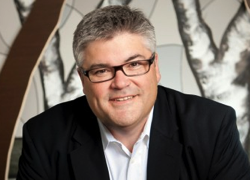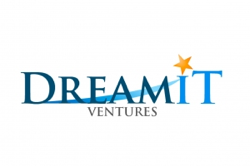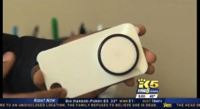|

REGISTRATION DEADLINE: MARCH 14
The 8th Annual Entrepreneurial University Startups Conference is organized annually by the National Council of Entrepreneurial Tech Transfer (NCET2.org). The University Startups Conference is a unique conference series dedicated exclusively to the best practices for creating and funding globally-competitive, venture-backable university startups.
We bring together universities creating startups with VCs, angel investors, SBIR program managers and Fortune 500 technology scouts funding them. The conference also includes NSF, NIH, NIST, DOD, DOE, DHS and other government agencies working on improving the Innovation Economy by increasing the quality and quantity of startups coming out of universities.
back to top 
 March 19-20, 2014 March 19-20, 2014
The GLOBAL 1000 Meet | Partner | Deal :: Startups Showcase + Conference is an important transaction-based conference for Global 1000 corporates, and for universities, angel investors, VCs, accelerators, incubators, state startup investment programs, and SBIR programs, who want to do deals with them. The conference has multiple showcases by Global 1000 corporates, state programs, universities, VCs and angel investors. Sophisticated meeting software allows for real-time meetings between conference attendees to facilitate deal-making at the conference.
back to top 
 AstraZeneca's global biologics R&D arm MedImmune and the University of Cambridge have entered into a three-year oncology research collaboration in order to advance cancer research by using imaging technologies to measure key biologic changes within growing tumors. AstraZeneca's global biologics R&D arm MedImmune and the University of Cambridge have entered into a three-year oncology research collaboration in order to advance cancer research by using imaging technologies to measure key biologic changes within growing tumors.
back to top 
 University of Maryland students will host Bitcamp, the university's first Major League Hackathon, April 46, 2014 in Cole Field House on the university's College Park, Md., campus. More than 750 college and high school students from across the country are expected to attend the innovative technology summit at UMD. University of Maryland students will host Bitcamp, the university's first Major League Hackathon, April 46, 2014 in Cole Field House on the university's College Park, Md., campus. More than 750 college and high school students from across the country are expected to attend the innovative technology summit at UMD.
back to top 
 The University of Texas MD Anderson Cancer Center and MedImmune, the global biologics research and development arm of AstraZeneca, will collaborate through MD Anderson's Moon Shots Program to develop therapies that unleash patients' immune systems to attack their cancers. The University of Texas MD Anderson Cancer Center and MedImmune, the global biologics research and development arm of AstraZeneca, will collaborate through MD Anderson's Moon Shots Program to develop therapies that unleash patients' immune systems to attack their cancers.
back to top 

Every day on my way to work, I walk past the “Deepthroat Garage,” the once-secret spot where The Washington Post’s Bob Woodward met FBI Associate Director Mark Felt to swap info that eventually brought down President Richard Nixon in The Watergate scandal. It is a spot that resonates deeply with people in Washington, marked with a historical placard for those who are passing by.
There is another historical marker 100 feet from that location that is nowhere near as popular but arguably more significant. Across the intersection where Wilson and Clarendon boulevards meet marks the spot where the Internet was invented.
back to top 

Commercializing technology doesn’t have to be all about patents, licenses and startups.
Universities looking to grow their influence in the technology sector often focus on patenting their own ideas, starting companies from faculty research and other strategies that keep new ideas in-house or on a leash. But Maryland’s technology industry relies on the talent coming out of local universities. And in order for the industry to grow and thrive, technology companies and universities will need to forge stronger bonds.
back to top 

Featuring Chris Sasiela, PhD, RAC, Regulatory Strategist, Office of Translational Alliances and Coordination, NHLBI, this inaugural Hangout, “Navigating the FDA website,” will provide biomedical innovators with an overview of the types of information available on the U.S. Food and Drug Administration website including: organization charts, contact info, guidance documents, and more! Key take-away points will include: -A guide to finding organization charts for the FDA’s Center for Devices and Radiological Health, Center for Drug Evaluation and Research, and Center for Biologics Evaluation and Research -Contact information for various Offices and Divisions -Contact information for Small Business Assistance contacts -Guidance documents -Public information related to product approvals that can be applied to your technology Tune in and share out using the hashtag #SBIRChat .
back to top 

MIT professor Yael V. Hochberg revealed the most effective startup accelerators in the country Tuesday at SxSW in Austin. DreamIt Health showed up in slot #15 and was the only health focused accelerator on the list.
Hochberg is a professor of Finance at the Sloan School of Management at the Massachusetts Institute of Technology. She and professor Susan Cohen of the University of Richmond and the Batten Institute at the University of Virginia’s Darden School of Business, used original research and data from CrunchBase to rank the 15 accelerators.
back to top 

According to financial services firm Ernst&Young, global venture capital investment in 2013 increased 2 percent compared to 2012, to $48.5 billion. Meanwhile, economic conditions improved in many geographic markets due to increased levels of liquidity and a boost in investor confidence.
The upshot: More investors are competing to invest in promising startups and entrepreneurs, especially outside the U.S.
back to top 

2014 will continue to be a year of transformation as the implementation of the Affordable Care Act and the changes it represents ripple through the healthcare industry. From conversations with healthcare providers across the country, Vree Health has identified four key issues providers face in the coming year–and beyond.
1. Healthcare reimbursement is due for a reboot
Healthcare systems, hospitals and providers are caught between two widely divergent business models: fee-for-service versus pay-for-performance. While dependent on the former, they must restructure their businesses to improve quality and manage costs across the entire care continuum to prepare for the latter. It’s an about face that Dr. David Nash, Founding Dean of the Jefferson School of Population Health, likened to turning an aircraft carrier around in the Panama Canal, when he spoke at MedCity CONVERGE last year.
back to top 

Last year the California HealthCare Foundation (CHCF) put out a report on healthcare accelerator programs that we covered at the time. It is still the best summary of the health accelerator space. CHCF also created an infographic on how healthcare accelerators can maximize their value. The report focused on Rock Health, Startup Health, Blueprint Health, HealthBox, StartX Med, and TigerLabs.
Since that report was published, other health accelerators have launched and had classes, DreamIt and Wildcatters being the largest ones that come to mind. The accelerator landscape is getting attention right now with SXSW going on and accelerators are active at and around conferences. I thought it was time to revisit the subject.
back to top 

The Tech Council of Maryland (TCM), Maryland's largest technology trade association, is pleased to announce that three members of its board have been named to a statewide private sector economic development commission. They are Douglas Doerfler, CEO of MaxCyte and TCM chairman; Dr. DeRionne Pollard, president of Montgomery College; and Christy Wyskiel, senior advisor for Enterprise Development at Johns Hopkins University.
back to top 
 COLLEGE PARK, Md. — The $100K ACC Clean Energy Challenge, a business plan competition supported by the Department of Energy's (DOE) Office of Energy Efficiency and Renewable Energy (EERE) encouraging students from universities in the southeastern United States to develop business plans for new clean energy companies, today announces its Elite Eight Plus Two, with nine winners from ACC schools and one winner from the at-large, non-ACC pool of entrants. COLLEGE PARK, Md. — The $100K ACC Clean Energy Challenge, a business plan competition supported by the Department of Energy's (DOE) Office of Energy Efficiency and Renewable Energy (EERE) encouraging students from universities in the southeastern United States to develop business plans for new clean energy companies, today announces its Elite Eight Plus Two, with nine winners from ACC schools and one winner from the at-large, non-ACC pool of entrants.
back to top 

Imagine a world in which everyone is empowered to take charge of their own health care by discovering their personal genetic risk factors. That's the vision of Anne Wojcicki, founder and CEO of the personalized gene-testing company 23andMe.
"How many people love the health care they're getting today?" Wojcicki asked a large audience here Sunday (March 9) at the South By Southwest Interactive festival. Only a handful of people raised their hands.
back to top 

Health technology startups shone this year at South by Southwest Interactive.
Pedicab bikers raved about TumorPaint (the inventor of the “molecular flashlight” delivered a rousing talk), and Misfit Wearables piqued excitement by giving out 100 of its free fitness devices to attendees. And a mental health startup called ThriveOn beat out social networking apps to win Best of Show at the accelerator competition.
back to top 

Here’s a testament to how 3D printing is making rapid prototyping more accessible to startups and entrepreneurs. Pictured here is a smartphone case designed and 3D printed by 15-year-old Suman Mulumudi, a student at Lakeside School in Seattle (where Bill Gates attended).
Mulumundi is also the CEO of Stratoscientific, a company he co-founded with his father, a cardiologist, to commercialize the case and another cardiology device he developed.
back to top 

Don't take $5,000 from all your friends, Fortify Ventures Managing Director Jonathon Perrelli warns a founder over lunch in the second episode of “Startupland,” or "you're going to have 20 pains in the asses."
If “Startupland” — a documentary on early-stage entrepreneurship that premiered last week in D.C — does one thing well, it's depicting the complex and uneasy relationship founders have with outside capital. The above quote, in particular, is a particularly blunt reference to the pitfalls of the friends-and-family round, where a startup CEO risks adding a horde of impatient, inexperienced micromanagers to his cap table. It's a tension that runs throughout the first two episodes of “Startupland,” which was screened on March 13 at Landmark's E Street Cinema. Founders need early money, yet early money is expensive.
back to top 

Perhaps one of the most persistent struggles when dealing with anxiety is what people get wrong about the disorder.
According to Joseph Bienvenu, an associate professor of psychiatry and behavioral sciences at Johns Hopkins University, there are many fallacies when it comes to anxiety disorders, and that can make dealing with it more difficult. These misconceptions are a common reality for those who either have the condition, know someone who is battling it or think they may be on the brink of a diagnosis. We've debunked the 10 of the most common myths about anxiety and panic disorders.
back to top 
Monday, March 24, 2014
The DC regional Innovation Corps (I-Corps) program is now accepting university research teams from the DC, MD, and VA area for the 5-week Lean LaunchPad, technology commercialization and customer development workshop beginning March 24th. UMD is the lead institution running the NSF-funded program, and as such, teams from UMD will be given priority in this program.
back to top 
|